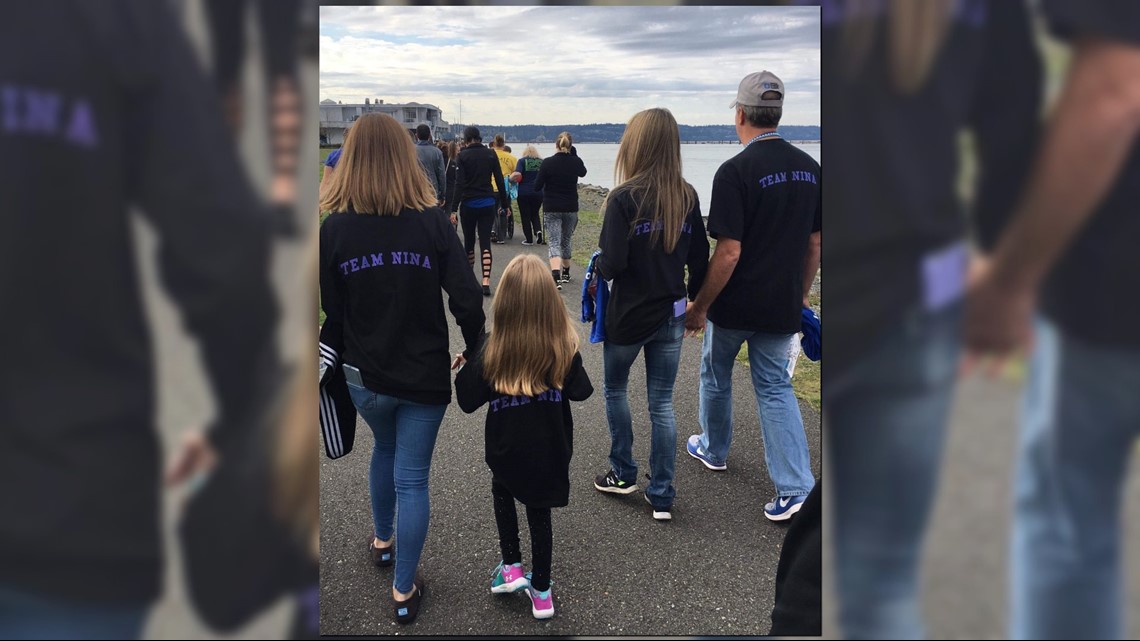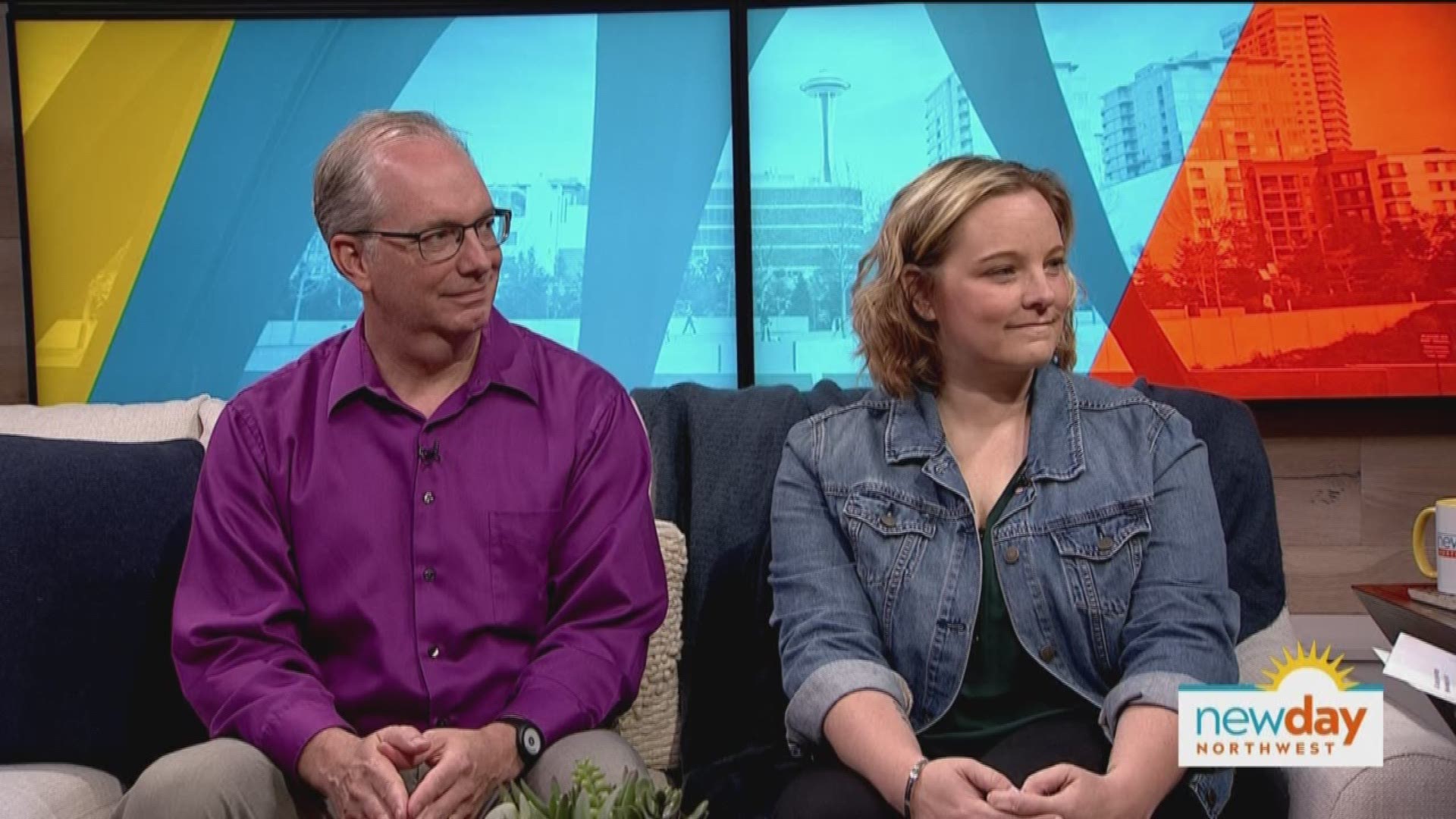SEATTLE — Laurel Media lost her husband Eric to suicide 8 years ago, and at the time, she didn't understand suicide or mental illness, "I just feel like there was more. There was more to understand there was more to know," for herself and her three young children. Through that journey, she got involved with the American Society for Suicide Prevention (AFSP), "Getting involved, learning, and educating people is just so important," she said, "It's how we stop it."
Tim Krivanek lost his daughter Nina to suicide. As a father, he didn't know how to talk to her. "Dads say, 'You're feeling sad, get over it. Deal with it. Suck up,' that kind of thing. That's not the kind of conversation you need to be having with people. You need to be showing empathy. You need to be listening as opposed to trying to fix."
Also part of that says Tim, is treating mental health like we treat physical health, "We're trying to even change the language to remove the words 'committing suicide' to 'dying by suicide' because it's not a choice, it's it's an outcome of a medical condition."
As part of Mental Health Awareness Month, the American Foundation for Suicide Prevention has launched the campaign #RealConvo to help people have real conversations about mental health.
"It's just about how to start those conversations with people," said Laurel, "'I love you', 'I'm concerned about you'. It's about looking at your friend and saying, 'I'm not okay, and this is how I'm feeling,' and not being afraid of that. It's opening the doors to engage in conversation. When we share, we let something out."
People might feel hesitant initiating a conversation with someone who might be in crisis because they don't want to say the wrong thing, or don't want to assume too much, but the importance of reaching out and making a connection is critical.
Empathy is key, says Tim, "When people are struggling it is real to them and as we're having the conversations we need to understand that this is real. This is not somebody trying to get attention, somebody making stuff up. This is real. It's a medical condition and let's deal with it like that."
AFSP's also has programs for people who have lost someone to suicide. Healing Conversations is a peer program that is "loss for loss," says Laurel, "I would talk to somebody who's lost their spouse or their partner. Tim would talk to somebody who has lost his child," it's another way for people impacted to get support from a community and not feel so alone.
YOU CAN HELP RAISE AWARENESS AND FUNDS FOR THE AFSP
The largest private fundraiser of suicide research and the largest fundraising efforts the AFSP has are their walks. The Out of the Darkness Community Walks are held in hundreds of cities across the country. The walks raise money and awareness, but as important, they connect the community for camaraderie and support.


SUICIDE PREVENTION HOTLINE
Help is available 24 hours a day at the Suicide Prevention Hotline. If you are thinking about suicide, or you are worried about a friend or loved one, call 1-800-273-8255 for support.
This segment is sponsored by the American Foundation for Suicide Prevention. Watch New Day Northwest 11:00 weekdays on KING-TV Ch.5 or streaming live on KING5.com. Connect with New Day via Facebook, Twitter, Instagram.

